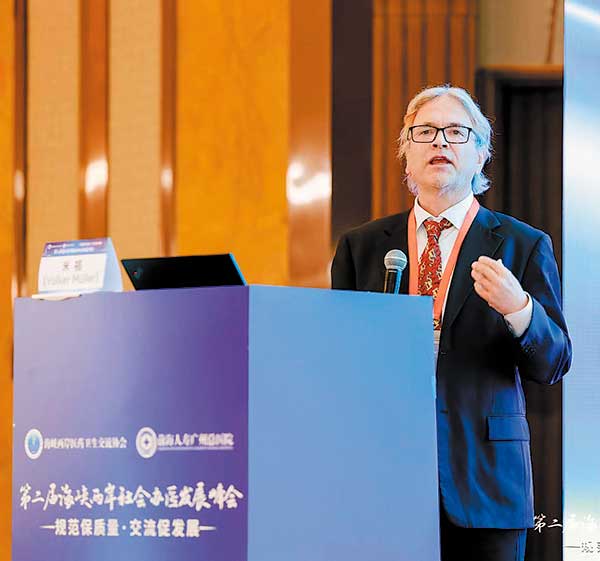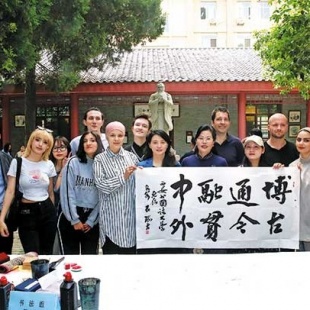Characters for the world
Growing interest in Chinese sees the language cross borders and enhance a sense of common purpose, Fang Aiqing reports.


A poetic tie
It's the third year Liao Shiqin has been teaching Chinese in Vienna, Austria. Her students range from sophomores majoring in Sinology at the University of Vienna and retirees learning Chinese for fun, and "preventing Alzheimer's disease", to those learning as a personal challenge, to facilitate work, find better job opportunities, or simply because they have a Chinese partner.
The 32-year-old has taught in Indonesia, South Africa and the United States over the past decade. Throughout this period, she has worked on the premise that raising her students' interest in Chinese language and culture involves maintaining a respect for their culture.
So, Liao is keen on sharing in her classes what she sees in her new environment and the culture shock she experiences, comparing between the differences, and listening to her students' stories of China, as well as explaining to them what China is like nowadays in her eyes.
These stories provide a window for both her students and herself to rediscover the life they have taken for granted, she adds.
Apart from routine courses, Liao has been reading Chinese poems with 48-year-old Seattle-based poetry lover Sarah Bitter, via video calls once a week for more than two years.
With different cultural and educational backgrounds, life experiences and an age gap of 16 years, their dialogues often stir up shared feelings and fresh inspiration, both say.
Liao says reading poems aloud — both ancient and modern — with Bitter is an escape from the real world and a dive into the life of different historical periods.
Bitter believes that poetry makes people feel the essence of humanity. She has noticed that in many ancient Chinese poems, the experiences of the poets themselves aren't foregrounded, as exemplified in Southern Song Dynasty (1127-1279) poet Dai Fugu's Huai Cun Bing Hou (River Village after the Turmoil), which makes her think of war and people displaced by conflict.





































